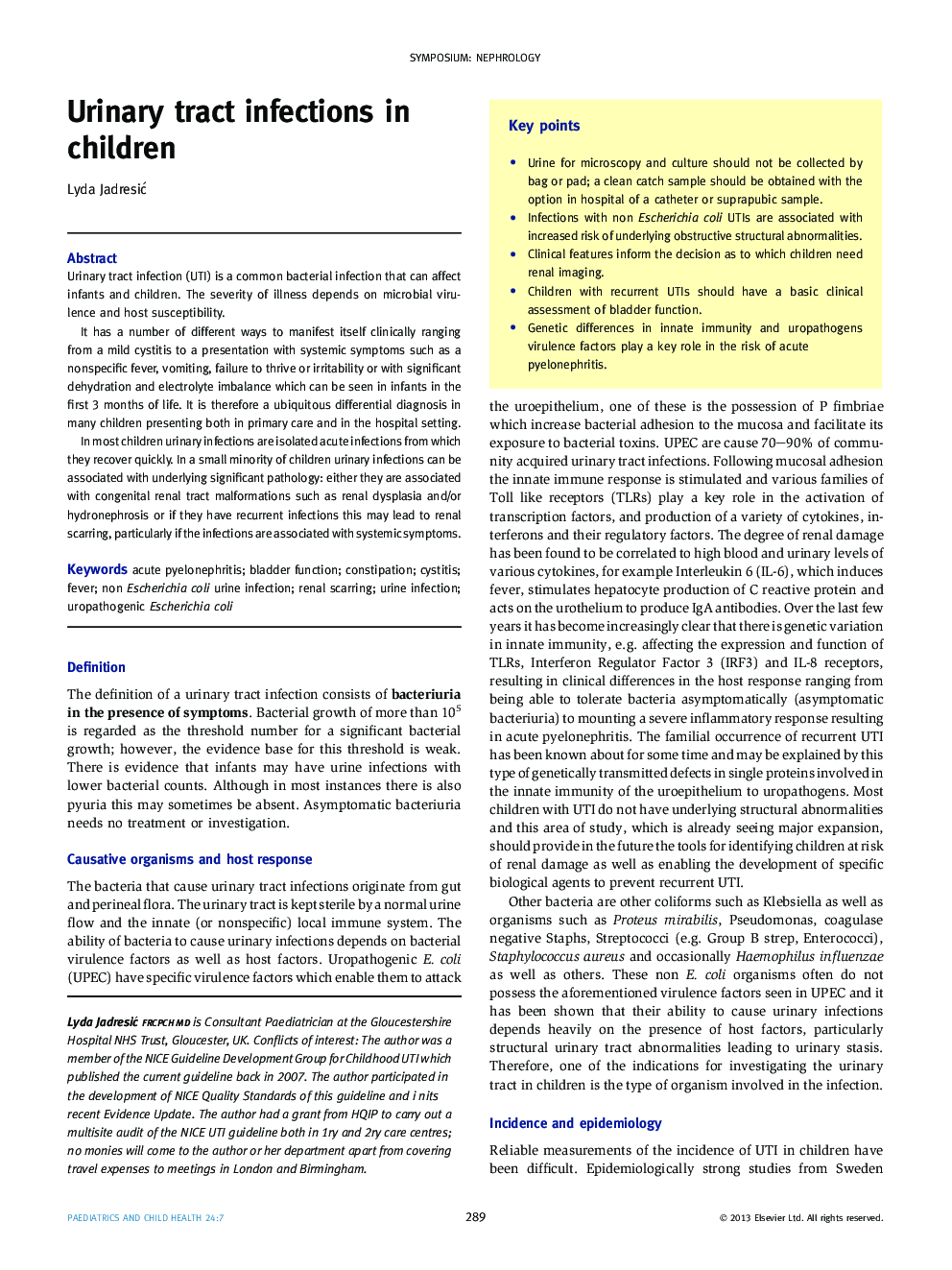| Article ID | Journal | Published Year | Pages | File Type |
|---|---|---|---|---|
| 4172027 | Paediatrics and Child Health | 2014 | 4 Pages |
Urinary tract infection (UTI) is a common bacterial infection that can affect infants and children. The severity of illness depends on microbial virulence and host susceptibility.It has a number of different ways to manifest itself clinically ranging from a mild cystitis to a presentation with systemic symptoms such as a nonspecific fever, vomiting, failure to thrive or irritability or with significant dehydration and electrolyte imbalance which can be seen in infants in the first 3 months of life. It is therefore a ubiquitous differential diagnosis in many children presenting both in primary care and in the hospital setting.In most children urinary infections are isolated acute infections from which they recover quickly. In a small minority of children urinary infections can be associated with underlying significant pathology: either they are associated with congenital renal tract malformations such as renal dysplasia and/or hydronephrosis or if they have recurrent infections this may lead to renal scarring, particularly if the infections are associated with systemic symptoms.
